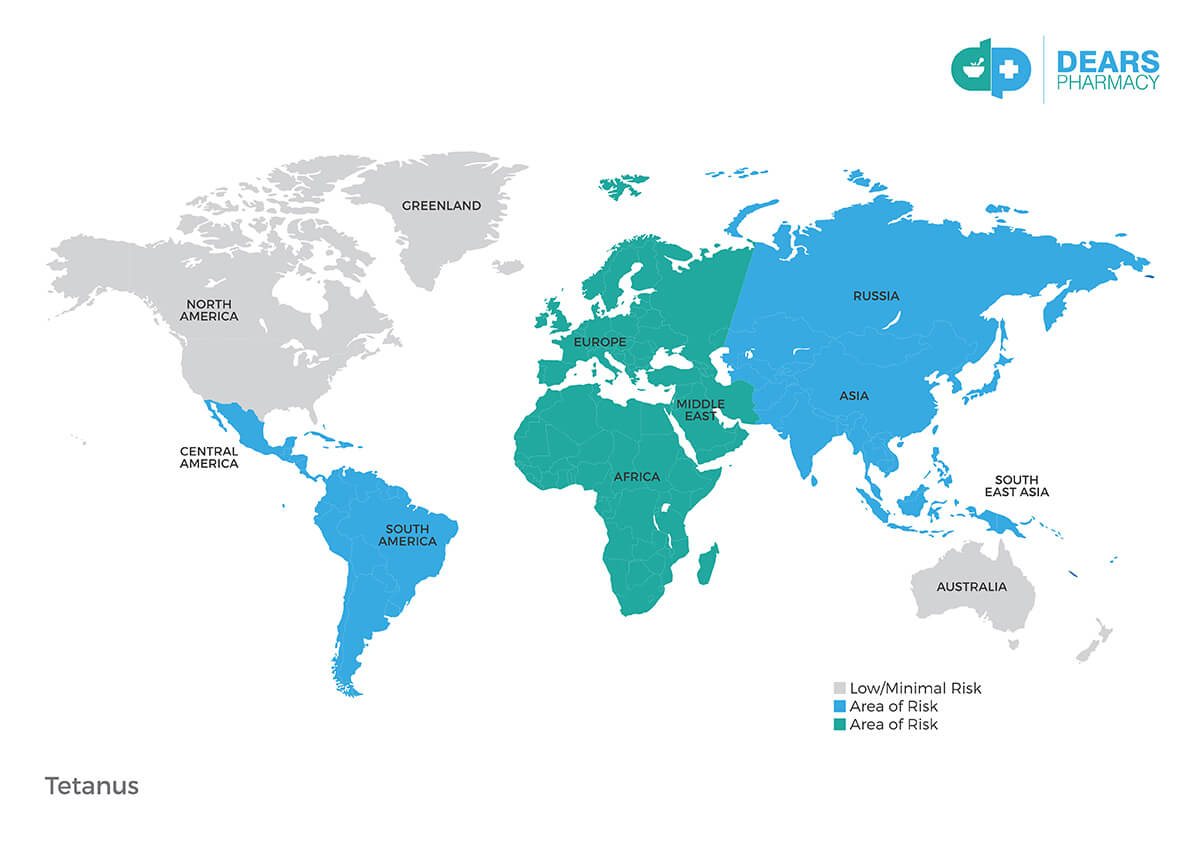What is it?
Tetanus is a bacterial infection which occurs when a puncture wound becomes contaminated. The bacteria that can cause tetanus are mainly found in soil, house dust and animal & human waste such as manure. Once entered the body via a wound or serious burn the bacteria multiplies and produces a neurotoxin which disrupts the body’s nervous system.
Countries at risk…
Countries at risk the bacteria can be found worldwide however most tetanus cases occurs in countries where there is not a suitable vaccination programme such as China, India, Africa and in certain South American countries.

Travel precautions
Our recommended vaccines for the most common travel destinations outside of Europe includes Hepatitis A, Typhoid and Diphtheria, Tetanus and Polio (DTP) vaccines. For travellers who are visiting the developing world on a regular basis or for prolonged periods of time, we would recommend considering hepatitis B vaccine. Cholera is worth considering for travellers visiting rural areas of developing countries. The vaccine against cholera (Dukoral) also reduces the risk of the most common form of traveller’s diarrhoea caused by E coli. Dukoral is an oral vaccine given in two doses one week apart.
Tetanus is commonly associated with rusty nails and although there are many ways for the bacteria to enter your body this is the most common as nails provide the perfect entry point for the bacteria into the body. Make sure to receive urgent medical attention if you are involved in any injuries or accidents while travelling.
Signs and symptoms
The symptoms of tetanus can take up to 3 weeks to develop. The earliest symptom is a stiffness of muscles in the jaw (lockjaw) which then spreads to the neck and other limbs and cause other problems such as swallowing.
The vaccination
The childhood vaccination programmes include a vaccine against Diphtheria, Tetanus & Polio. Once the childhood course is completed travellers need a booster every 10 years when planning on travel to higher risk areas.
Availability
Select your preferred pharmacy to visit their page and enquire about this service or just pop in when it suits you.

